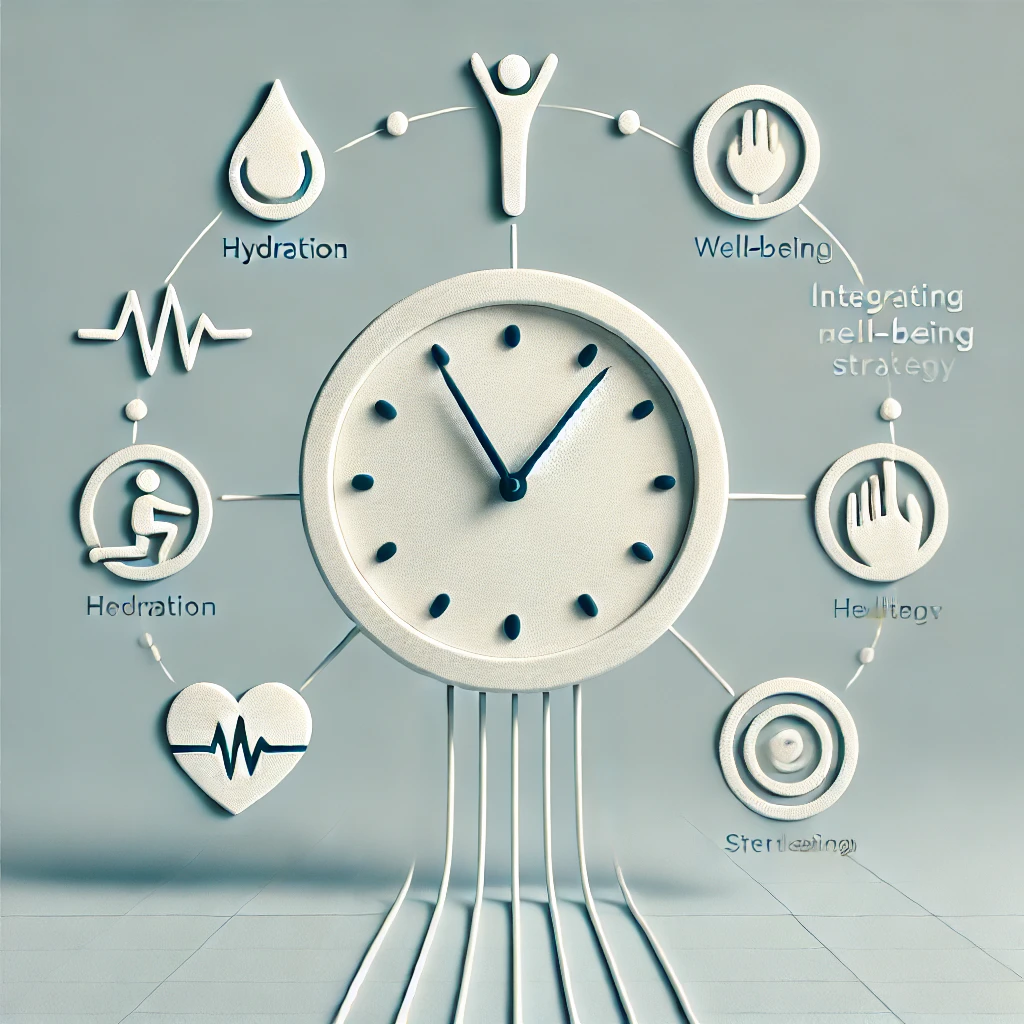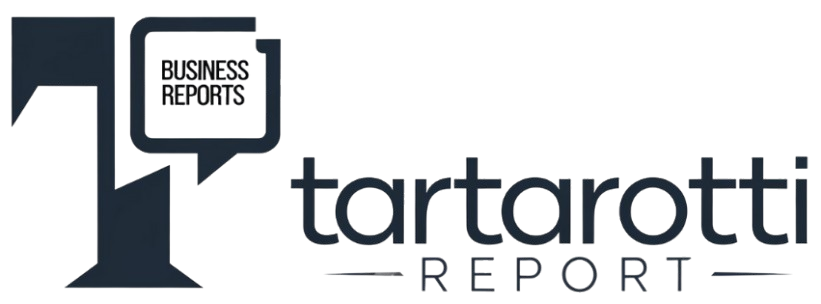Introduction:
In today’s corporate world, the high performance of executives and leaders is directly linked to their health and well-being. Executives who take care of their physical and mental health are more productive, make better decisions and inspire their teams. In addition, with the increase in corporate responsibility around ESG (Environmental, Social, and Governance) principles, incorporating executive health programs into strategic planning is a trend that unites individual well-being, organizational sustainability and efficient governance.
Companies that integrate health and well-being into strategic planning not only guarantee the performance of their leaders, but also create an organizational culture that values sustainability, health and balance. This article will explore how executive health can be a central part of strategic planning, with practical tips that address training, nutrition, hydration and the creation of effective and innovative health programs.
Part 1: Straight to the Point 🎯 – Basic Strategies and Practical Actions
Part 1, “Straight to the Point”, offers practical instructions and suggestions for immediate action.

Practical Tips for Integrating Executive Health into Strategic Planning
Here are some practical and creative tips to help executives and companies include health as part of strategic planning, ensuring high performance and alignment with ESG principles.
- Create “Health Checkpoints” at Strategic Meetings
- How to do it: An innovative way to integrate health into strategic planning is to include “health checkpoints” in important meetings. Before or after discussing company goals and challenges, set aside 5 minutes for quick relaxation practices, such as breathing exercises, stretching or even a short walk. Another idea is to use part of the meeting time to discuss wellness goals, such as joining the company’s physical activity program or improving your diet.
- Why it’s important: Incorporating these moments of self-care into strategic planning helps executives stay focused and reduce stress levels during intense discussions. In addition, breathing and stretching practices can increase mental clarity and creativity, which are essential for finding innovative solutions. A study published by the Harvard Business Review showed that simple physical activity breaks during meetings increase problem-solving capacity.
- Develop Personalized Health Programs Aligned with Strategic Planning
- How to do it: Every executive has different health needs, so create personalized health programs that align with your professional goals. For example, if the strategic objective is to increase productivity and reduce stress, include activities such as yoga or short-term functional training to increase energy and focus. In addition, encourage healthy leadership training that combines sports practice with the development of managerial skills.
- Why it’s important: A personalized health program ensures that each executive has the right tools to optimize their performance. What’s more, by connecting health goals with performance goals, it’s possible to align physical well-being with business success. Companies that invest in personalized programs have a significant reduction in burnout rates and an increase in executive talent retention, according to the Journal of Occupational Health Psychology.
- Set Hydration Goals in the Workplace
- How To: Hydration is often overlooked in the corporate environment, but staying properly hydrated is essential for maintaining focus and energy throughout the day. Create a “Hydration Challenge” within the executive team, with daily targets for water intake. To encourage adherence, make personalized water bottles available and hand out charts showing the relationship between hydration and mental performance.
- Why it’s important: Dehydration negatively affects brain function, causing loss of focus and fatigue. For executives who need to make quick and accurate decisions, staying hydrated is key to maintaining high performance. A study in the Journal of the American College of Nutrition revealed that adequate levels of hydration increase the ability to concentrate and reduce errors during complex tasks.
- Turn Coffee Breaks into Active Breaks
- How to do it: Coffee breaks can be transformed into “active breaks” to boost physical and mental health. Instead of just having a coffee and returning to the desk, encourage the team to take a short walk around the office, stretch or even play a quick game of table tennis or another light sport. These activities not only re-energize the body, but also encourage interaction between leaders and stimulate new ideas.
- Why it’s important: Physical activity during the day increases circulation and promotes the production of endorphins, which improve mood and productivity. In addition, fun and relaxed activities, such as quick games, can reinforce collaboration between the team and increase creativity. A Stanford University study showed that walking increased the generation of new ideas and insights during strategic discussions by 60%.
- Incorporate Healthy Foods into Corporate Meetings
- How to: Replace traditional corporate meeting snacks – often high in sugar and processed carbohydrates – with healthy options that promote energy and concentration. Fresh fruit, nuts, natural protein bars and green juices can replace cookies and soft drinks. Another option is to create healthy “meeting menus”, where each meeting has a specific food theme that promotes health, such as foods rich in omega-3 to improve brain function.
- Why it’s important: Food has a direct impact on mental and physical performance. Executives who consume nutrient-rich foods, such as fruits and seeds, have better energy levels and mental clarity. Research from Harvard Medical School has shown that diets rich in antioxidants and omega-3s promote better cognitive function and greater resilience to stress. In addition, by promoting healthy eating, the company is also demonstrating its commitment to sustainability, reducing the consumption of ultra-processed foods and encouraging greener choices, in line with the environmental pillar of the ESG.
Part 2: Explaining the Concept Cientificamente👨🏻🔬 – Deepening your knowledge
Part 2, “Explaining the Concept Scientifically”, provides a scientifically-based in-depth look at the “whys” and explains in more detail the suggestions set out in Part 1

Why Integrate Executive Health into Strategic Planning?
Executives are at the center of companies’ strategic and operational decisions, and their performance can be drastically affected by a lack of proper health care. Science shows that physical and mental well-being have a direct impact on leadership capacity, resilience and productivity. When incorporated strategically, executive health programs can generate benefits not only for leaders, but for the entire organization. Below, we explain how and why this works, based on scientific evidence.
1. The Impact of Physical Activity on Executive Function and Decision Making
Regular physical activity is one of the pillars of executive health and is directly associated with improvements in cognitive function, particularly in areas such as memory, strategic planning and decision-making. Studies indicate that aerobic and strength exercises increase blood circulation to the brain, promoting the release of neurotransmitters such as dopamine and serotonin, which improve mood and mental clarity.
A study published in Frontiers in Psychology showed that leaders who exercise regularly experience greater decision-making capacity under pressure and are more creative in challenging work environments. In addition, physical activity reduces levels of cortisol – the stress hormone – allowing executives to cope better with the tensions of day-to-day corporate life, which contributes to more balanced leadership.
This positive impact of physical activity is also linked to companies’ strategic planning, as healthier leaders are able to think more strategically and sustainably, in line with the principles of responsible governance, the “Governance” dimension of ESG.
2. Functional Nutrition and High Cognitive Performance
Food directly affects cognitive performance, and executives who follow a functional diet are better equipped to face daily challenges. Foods rich in antioxidants, omega-3 fatty acids and B vitamins are known to support brain health, improving memory, focus and problem-solving ability.
According to a study published in the Journal of Neurochemistry, diets rich in omega-3s – found in foods such as salmon, walnuts and flaxseeds – help preserve the integrity of brain cells and improve communication between neurons, resulting in greater mental clarity. In addition, the inclusion of foods rich in fiber and probiotics favors the intestinal microbiome, which has a strong connection with mental health, regulating mood and the response to stress.
Promoting functional nutrition in the corporate environment, whether through healthier menus at meetings or encouraging more conscious food choices, also aligns with ESG’s environmental and social principles. Choosing organic and sustainably sourced food reduces environmental impact and improves employee well-being, creating a synergy between health and corporate responsibility.
3. Adequate Hydration and its Effect on Mental Performance
Hydration is another crucial factor for high cognitive performance. Even mild dehydration can negatively affect brain function, impairing concentration, memory and the ability to perform complex tasks. For executives who need to make important decisions and manage teams under pressure, inadequate hydration can compromise the quality of their work.
A study published in the British Journal of Nutrition revealed that dehydration of just 1-2% of body weight is enough to cause significant declines in cognitive function, including reduced ability to focus and impaired short-term memory. This means that in order to maintain high performance, executives need to maintain an adequate level of fluid intake throughout the day.
In addition to being a self-care practice, promoting adequate hydration in the corporate environment – by setting up water stations and encouraging regular fluid consumption – is a simple way to increase well-being and productivity. This care is also aligned with ESG principles, by encouraging sustainable hydration practices, such as the use of reusable bottles, reducing the consumption of disposable plastics.
4. Stress Management: Mental Resilience and Leadership
Chronic stress is one of the biggest enemies of high executive performance. When not managed properly, stress can lead to mental exhaustion, reduced productivity and rash decisions. However, with the right stress management tools, such as mindfulness, breathing techniques and meditation, executives can strengthen their mental resilience and improve their ability to lead in high-pressure situations.
A study conducted by the American Psychological Association (APA) showed that the regular practice of mindfulness not only reduces stress, but also improves empathy, focus and emotional intelligence, essential skills for effective leadership. In addition, these practices help leaders maintain a balanced mental state, which is fundamental for strategic decision-making.
Companies that promote stress management among their leaders and teams are contributing directly to the “Social” dimension of ESG, ensuring that mental well-being is a priority within the organizational culture. This results in a healthier, more collaborative and productive working environment.
5. Strategic Planning Aligned with ESG: The Role of Executive Health
Integrating executive health into companies’ strategic planning not only improves the individual performance of leaders, but also reinforces the pillars of ESG. By investing in the well-being of their leaders, companies are promoting a culture of responsibility, sustainability and ethics that impacts the entire organization.
A McKinsey & Company report showed that companies whose leaders adopt wellness practices, such as healthy eating, regular exercise and stress management, show a 21% increase in productivity and a 41% improvement in employee satisfaction levels. These results show that executive health is not just a matter of self-care, but a corporate strategy that directly impacts the long-term success of the company.
Furthermore, by integrating health and well-being practices into strategic planning, companies strengthen their governance, aligning themselves with the expectations of investors and stakeholders in relation to social and environmental responsibility. This reinforces the company’s reputation and contributes to sustainable and ethical growth.
Conclusion
Executive health should be a central component of the strategic planning of any company seeking to achieve high performance and alignment with ESG principles. Executives who maintain healthy habits, such as regular exercise, functional nutrition, adequate hydration and effective stress management, not only improve their own performance, but also boost organizational success.
By investing in the health of leaders, companies are promoting a culture of responsibility and sustainability that positively impacts all levels of the organization. Integrating executive health programs into strategic planning strengthens corporate governance, improves employee well-being and contributes to a more sustainable and ethical future.

Kelton Tartarotti, a specialist in Health, Longevity and Lifestyle Reprogramming, brings an innovative approach to corporate and personal well-being in the Tartarotti Report. With a comprehensive background in Physical Education, including a BA, BSc and post-graduate studies in the Physiological Basis of Personalized Training and Sports Nutrition, Kelton has a solid foundation in sports and health sciences.
He is registered with the Regional Council of Physical Education (CREF-ES) under number: 005334-G/ES
His experience includes:
International certification as a Personal Trainer by the World Fitness Association (Florida/USA)
Coaching training by ABRACOACH
Specialization in Integrative Functional Health
15 years as a physical trainer for elite MMA athletes in world events
Working as a Physical Trainer at the Espírito Santo Olympic Center (COES)
In the Tartarotti Report, Kelton offers valuable insights into:
Scientifically-based executive health protocols
Stress management and resilience techniques for leaders
Sleep optimization strategies for cognitive performance
Functional nutrition adapted to corporate life
Efficient exercise programs for busy schedules







